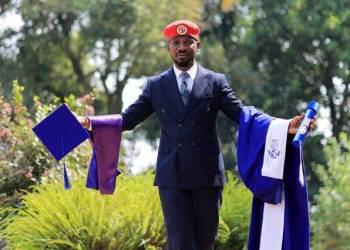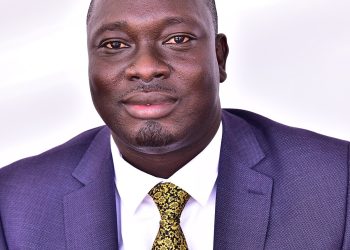Huawei Technologies Co. is the world’s largest telecommunications company, and also dominates African markets, where it has sold security tools that African governments use for digital surveillance and censorship on anyone against their reign.
According to an American Wall Street Journal, the Huawei employees have been provided with other services, not disclosed publicly.
Technicians from the Chinese powerhouse have, in at least two cases, personally helped the Ugandan government spy on her political opponents, including intercepting their encrypted communications and social media and using cell data to track their whereabouts, according to senior security officials working directly with the Huawei employees in Uganda.

The report claims that Last year, a group of six intelligence officers from ISO, CID & SFC struggled to contain a threat to the 33-year regime of President Yoweri Museveni, according to Ugandan senior security officials.
A pop star turned political sensation, Bobi Wine, had just returned from Washington with U.S. backing for his opposition movement, and Uganda’s cyber-surveillance unit had strict orders to intercept his encrypted communications, using the broad powers of a 2010 law that gives the government the ability “to secure its multidimensional interests.”
According to these officials, the team, based on the third floor of the capital’s police headquarters, spent days trying to penetrate Bobi Wine’s WhatsApp and Skype communications using spyware developed by an Israeli company but failed.
Then they asked for help from the staff working in their offices from Huawei, Uganda’s top digital supplier.
“The Huawei technicians worked for two days and helped us puncture through,”
said one senior officer at the surveillance unit.

The Huawei engineers, identified by name in internal police documents reviewed by the American Journal, used the Israeli-made spyware to penetrate Mr. Wine’s WhatsApp chat group, named Firebase crew after his band.
Authorities scuppered his plans to organize street rallies and arrested the politician and dozens of his supporters.
This incident in Uganda also happened in Zambia and was well detailed in a Wall Street Journal investigation, showed how Huawei employees have used the company’s technology and other companies’ products to support the domestic spying of those governments.
However the company denied these allegations,
Huawei has “never been engaged in ‘hacking’ activities,”
said a Huawei spokesman in a written statement.
“Huawei rejects completely these unfounded and inaccurate allegations against our business operations. Our internal investigation shows clearly that Huawei and its employees have not been engaged in any of the activities alleged. We have neither the contracts nor the capabilities, to do so.”
The spokesman added: “Huawei’s code of business conduct prohibits any employees from undertaking any activities that would compromise our customers or end-users’ data or privacy or that would breach any laws. Huawei prides itself on its compliance with local regulations and laws in all markets where it operates.”

However, Uganda’s government confirmed Huawei technicians were working with the police and intelligence agencies to bolster national security but declined to comment on the allegations of intercepting communications.
It has been revealed that Huawei has helped build 11 monitoring centers used to fight crime, according to Uganda Police deputy spokeswoman. A new six-story, $30 million hub due to open in November will be linked to more than 5,000 of the company’s cameras equipped with facial-recognition technology.
In September 2017, a team of senior Ugandan security officials was dispatched to study the video surveillance system in Algiers, which included mass monitoring and cyber-surveillance centers.
In early December 2018, a group of Ugandan intelligence officers in the cyber unit picked up wiretapped phone conversations between Bobi wine and several opposition lawmakers.
The cyber team monitoring the calls had a problem, they couldn’t decipher the details of the plans because Mr. Wine was speaking to his team using coded street slang.
“It was very clear he was organizing a political event, not a music show. We had to act quickly,” one of the officials said.
In a WhatsApp chat group, Uganda’s cyber team saw a list of 11 lawmakers Mr. Wine was planning to secretly insert into the concert program. The rally, at Mr. Wine’s beach club, was scheduled unusually early to throw off the security services. Using information from the cyber hub, hundreds of police swarmed the venue, arresting dozens of organizers and attendees. Some were arrested before they could reach the club.

“We were shocked. They knew everything about the event and the speakers, who we hadn’t announced,” Mr. Wine said.
One of the security officials showed the Journal screenshots of Mr. Wine’s WhatsApp chats with the Firebase crew where participants were exchanging details on the planned events. The official said the operation would have been impossible without the skills of Huawei’s technicians.






























































